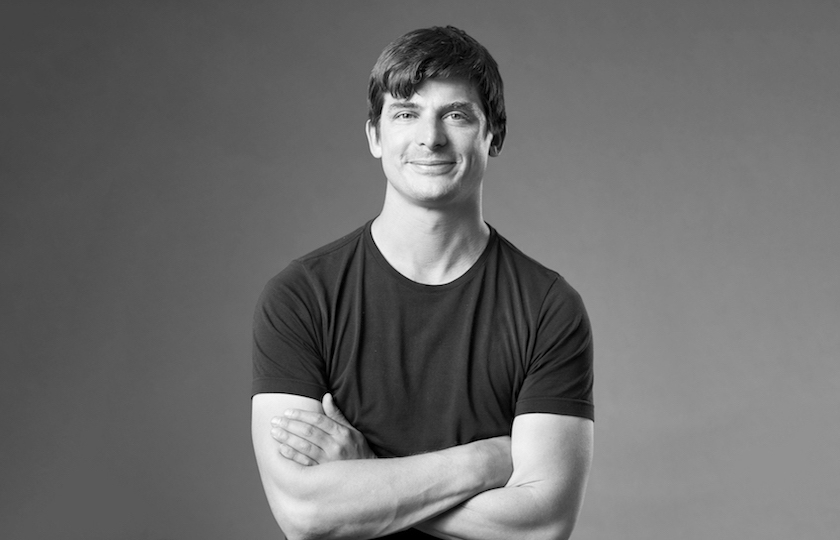Can you imagine a future without meat – or where we call cultured meat just “meat”?
Josh Tetrick, the energetic and passionate founder and CEO of Eat Just shared his journey with cultured meat and ethical consumption during last week’s Plant-based Asia Summit.
Eat Just is a California-based food tech company aiming to resolve mass-animal agriculture’s environmental and ethical concerns with plant-based food. Currently, the company offers Just Egg, an artificial egg from mung beans, and Good Meat, a lab-grown chicken from cellular agriculture.
Tetrick hopes that in the near future, cultured meat is just going to be called “meat”.
A few benefits of cultured meat he highlighted include no longer needing to slaughter animals, the lesser impact of land destruction for agriculture, and fewer carbon emissions.

How Josh’s journey began
Tetrick’s journey began when his best friend – and the company’s co-founder – Josh Balk introduced him to why animals mattered when they were both around 14 years old. Tetrick’s recalls Balk’s affection for whales got him connected to animals and then taught him how the animals from the food we eat also deserve care – including pigs, chickens, and cows.
“I played football back in the day, and I had this mindset of, well, of course, I can’t cut away all meat because it’s impossible to get protein just from plants. So that was something I had to get over,” he shared.
He proceeded over the next 10 years or so to remove different animal products from his diet one at a time, saying bye to butter, cheese, eggs, beef, and fish. But it did not sit right. He and Balk believed there had to be a way to use technology to create the world’s most conventional animal products like egg, poultry or pork without the need for slaughter or suffering as a consequence of conventional meat production.
So the pair decided to start the company in 2012. “It started with the decision that we need all of these animals in the first place, and then a whole lot of negative things for the environment follows from that,” he explains.
Just meat
Tetrick explained there is no need to slaughter animals to produce Just Meat – the company just needs a cell that is fed with nutrients inside a stainless steel vessel called a “bio-reactor”, to create what we now call lab-grown meat.
“With a chicken, you’ve got hundreds of thousands of chickens in warehouses, in a single warehouse, and they’re eating soy and corn all day long, after about 47 days, a chicken is slaughtered. What we do is give you the end thing that you want – really good, tasty chicken. But we just need a cell, we don’t need all that soy and corn that causes all these rainforests to be destroyed.”
In the future, the company plans to expand into producing lab-grown beef, pork, seafood, and all major kinds of animal proteins. He believes humans can source meat without all the negative impacts on the environment.
Lab-grown vs farmed meat
According to Tetrick, lab-grown and farmed meat are the same – from taste to protein content to composition – with the only difference being how they are produced. Just Meat’s lab-grown meat even contains “the bad stuff” like saturated fat and cholesterol.
“So we’re not saying this is better than a bowl of lentils or kale. Certainly not. I still think kale and lentils are better for your health, but [lab-grown meat] is a whole lot better than the conventional way of doing it.
The use of fetal bovine serum
Companies are currently using fetal bovine serum (FBS) to produce cultured meat, a growth medium component extracted from animals. There are two ways this is done.
In the traditional process, FBS is harvested from bovine fetuses from pregnant cows during slaughter using cardiac puncture – usually without any form of anaesthesia.
However, more recently, most cultivated meat companies are starting to produce flesh without harming animals. They carefully remove small muscle cells from a live animal using a local anesthetic to relieve them from pain.
Tetrick shared that his company has developed a way to produce cultured meat using plant cells instead of FBS. It was made possible by thinking about what nutrients the animal is consuming, such as soy and corn, and extracting them from plant-based sources – then mixing them all and seeing if they work together to produce the cultured meat.
“So we’ve figured it out. We’re waiting on the regulators to give us the thumbs up to push that out into the market. And then all future production will be without FBS.”
Just egg
To date, Tetrick’s company is best known for its plant-based egg alternative made from mung beans and sold in bottled liquid form.
According to the entrepreneur, the alt-egg is produced by turning the mung beans into flour and spinning them at a high rate so the protein is separated from the fat, fibre and starch. It is then mixed with non-GMO oil and other ingredients (not mentioned) to produce the alt-egg.
The resulting product has 67-per-cent less saturated fat and is free of cholesterol. In addition, from an environmental perspective, it uses 90-per-cent less land, water, and carbon emissions.
“From an animal perspective, you don’t need to mess with the animal. You’re going to leave the animal the hell alone and just grow mung beans. So that’s why we tend to like it better.”
On transitioning to better choices
Tetrick said he understands people who feel daunted to make a drastic change in their diets by removing meat and other animal products. His solution: take it one step at a time.
For example, substitute the pork you have for lunch with a bowl of lentils and still eat steak for dinner. What’s important is that people start building the habit of eating better for the planet, he explained.
“I want to live well past 90. I want to be a great grandfather one day. I want to see what the world will look like when I’m 90, and I want to live in a world that I’m proud of. And I think for all those reasons, eating a little bit kinder matters,” he concluded.



